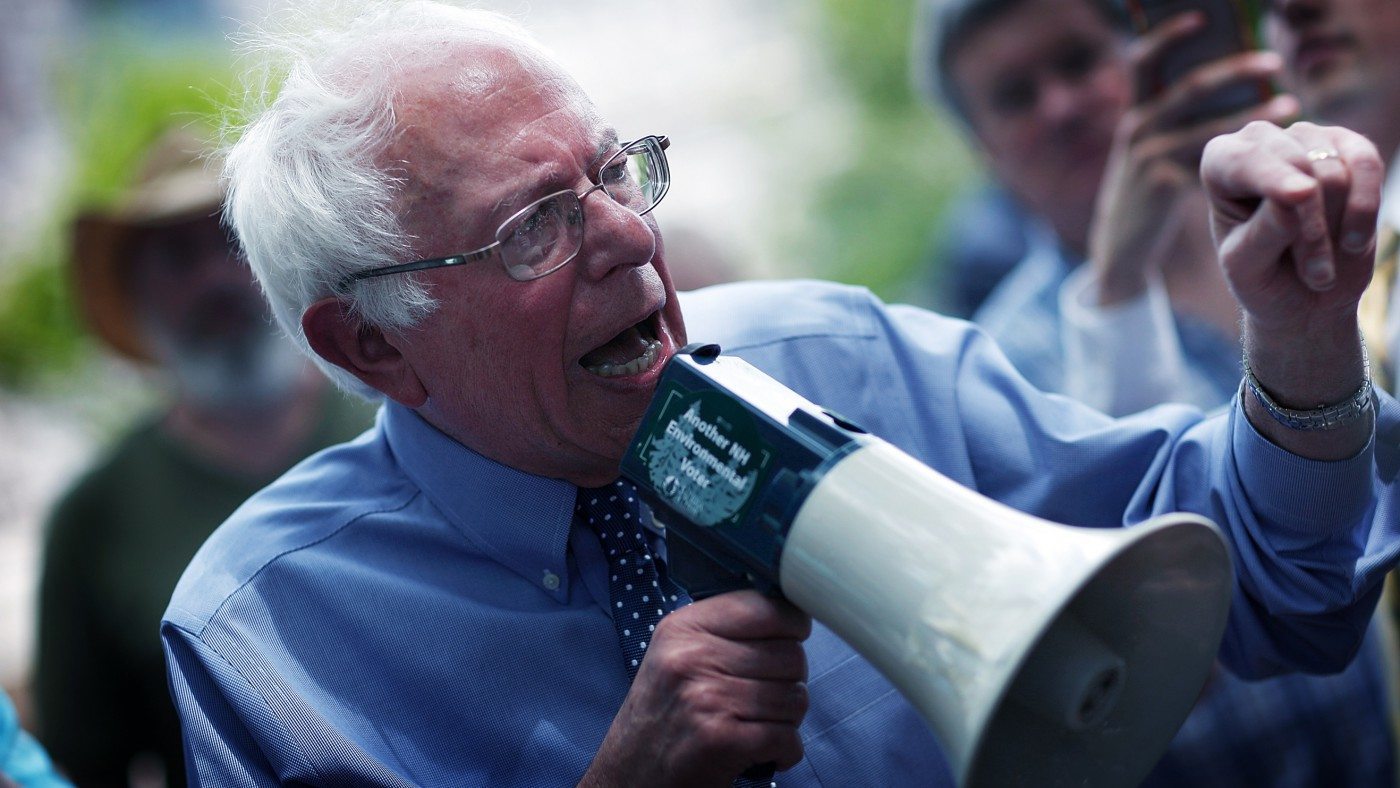Presidential candidate Sen. Bernie Sanders has joined environmental organizations, and members of the media, urging the US Department of Justice investigate Exxon Mobil and other energy companies under the Racketeer Influence and Corrupt Organizations Act (RICO). “Exxon Mobil knew the truth about fossil fuels and climate change and lied to protect their business model at the expense of the planet,” Sanders declared in a statement. Meanwhile, New York Attorney General Eric Schneiderman has begun a similar investigation. The vilification of those who challenge the climate establishment over the impact of human activities on climate has hit a new low.
Energy companies stand accused of deceiving the public by supporting organizations that raised questions about the climate orthodoxy while they knew that fossil fuel use could cause a climate catastrophe. The increased intensity of attacks and the threat of RICO investigations can be traced to Sen. Sheldon Whitehouse (D-RI), who last fall raised the prospect of using RICO to investigate energy companies.
The RICO threat is meant to stifle debate and create the impression that those who express doubts about the human impact on the climate system lack integrity and moral character. By inference, those who support the climate orthodoxy are morally superior and have no ulterior motives. They would have us believe that their only objective is to save the planet. On its face, this is a false dichotomy. Human beings and their motivations cannot be so easily stereotyped.
Character is alleged to be a function of funding. If funding comes from the government, environmental organizations or acceptable foundations it is to pursue truth; if it comes from corporations or business groups its purpose is to mislead.
An exchange between Milton Friedman and TV personality Phil Donahue in 1979 illuminated these assumptions. Donahue asked, “ “When you see around the globe the mal-distribution of wealth, … when you see the greed and the concentration of power, did you ever have a moment of doubt about capitalism and whether greed is a good idea to run on?”
Friedman’s response:
What is greed? Of course none of us are greedy; it’s only the other fellow who’s greedy. The world runs on individuals pursuing their separate interests…. Is it really true that political self-interest is nobler somehow than economic self-interest? … Just tell me where in the world you’re going to find these angels who are going to organize society for us?
Climate change is a multi-billion dollar industry. The US government spends over $20 billion annually on climate change related topics. Over 40,000 people attended the most recent COP-21, the Conference of the Parties meeting in Paris. Participation in the climate industry has been wealth creating. Organizations have flourished with funding to address the human influence on the climate system, academics have seen their research budgets increase, and corporations have been created, with the help of loan guarantees and subsidies, to exploit technology to reduce carbon emissions.
What is the intellectual basis for assuming that those who claim that we are on the verge of a climate catastrophe are only interested in saving the planet while the skeptics are motivated by greed?
In 1994, Vice President Al Gore attempted to use Ted Koppel’s Nightline program to discredit some scientists who were critical of his “Earth in the Balance” argument. Koppel wasn’t having it. He told the Vice President:
Global warming and ozone depletion are undeniably important. The future of mankind may depend on how this generation deals with them. But the issues have to be debated and settled on scientific grounds, not politics. There is nothing new about major institutions seeking to influence science to their own ends. The church did it, ruling families have done it, the communists did it, and so have others, in the name of anticommunism. But it has always been a corrupting influence, and it always will be. The measure of good science is neither the politics of the scientist nor the people with whom the scientist associates. It is the immersion of hypotheses into the acid of truth. That’s the hard way to do it, but it’s the only way that works.
The Koppel standard should be the primary criterion for judging statements and views about climate change. Are they supported by objective facts and science? Disagreements on interpretation should be settled by honest debate, not by impugning integrity, acts of intimidation or threats of criminal investigations. Scientific inquiry has always involved free and open debate and always should. Attempts at character assassination and threats are just a form of McCarthyism intended to chill a willingness to challenge asserted truths. Knowledge advances through challenge and debate. Stifling those does grave damage to the science enterprise. In the end, science may be the long term victim.


